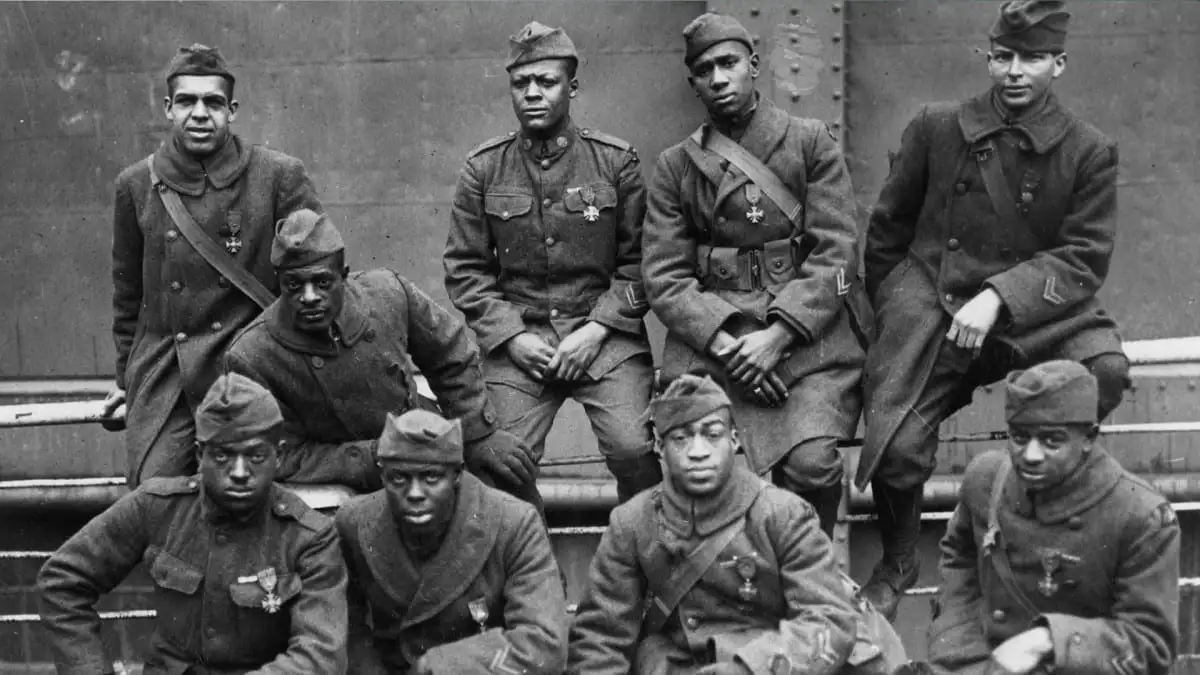How Black WWI Veterans Shaped The Civil Rights Movement
Published: 5 January 2023
via the shoppeblack.us web site

the-harlem-hellfighters
The hundreds of thousands of African Americans who served in the U.S. Army during World War I and returned home as heroes soon faced many more battles over their equality in American society.
While they were celebrated in the streets of New York, they also soon encountered a wave of hatred and violence. Chad Williams, the Samuel J. and Augusta Spector Chair in History and the author of “Torchbearers of Democracy: African American Soldiers in the World War I Era,” sat down with BrandeisNow to discuss the aftermath of World War I for black people in America.
How were black soldiers received in the U.S. after serving in the war? In what ways were they celebrated, and in what ways did they face hostility?
African-American soldiers were celebrated as returning heroes after the war. Welcome Home parades took place in small towns and big cities. On February 17, 1919, tens of thousands of New Yorkers welcomed home the all-black 369th Infantry Regiment with a massive parade on Fifth Avenue and into Harlem.
Black soldiers symbolized the hopes and aspirations African Americans had for true democracy in the United States after the war. Conversely, many white Americans viewed returning black soldiers as a threat because of their military service and exposure to new ideas about race and equality, especially in France. Many black veterans were victims of a wave of racial violence in 1919 that came to be known as the “Red Summer.”
How did the African-American experience in the war, and in the postwar period, influence the civil rights movement?
World War I was in many ways the beginning of the 20th-century civil rights movement. The war created opportunities for African Americans to demand their civil rights, in and outside of the Army. Moreover, the war transformed the racial and political consciousness of a generation of black people, especially those who served in the military. This would shape the activism and everyday resistance of black people throughout the postwar period.
Read the entire article on the shoppeblack web site.
External Web Site Notice: This page contains information directly presented from an external source. The terms and conditions of this page may not be the same as those of this website. Click here to read the full disclaimer notice for external web sites. Thank you.



